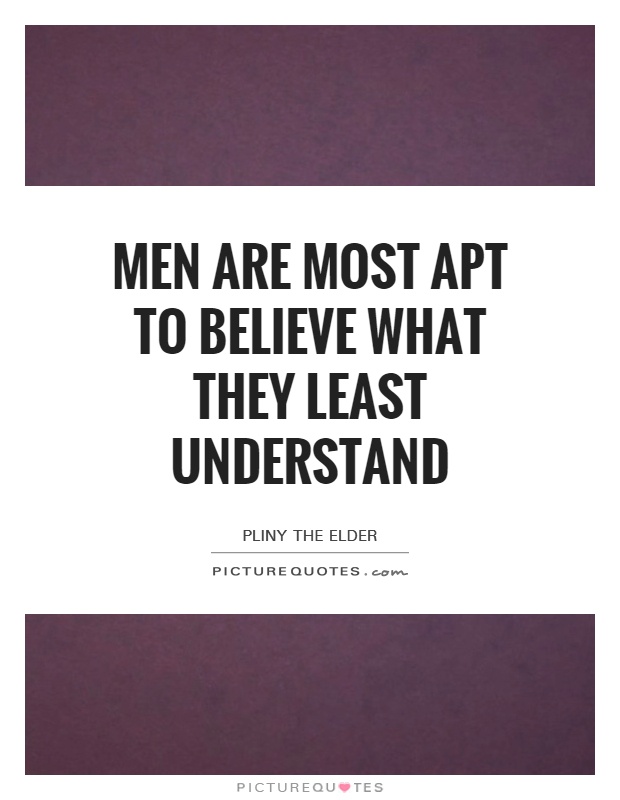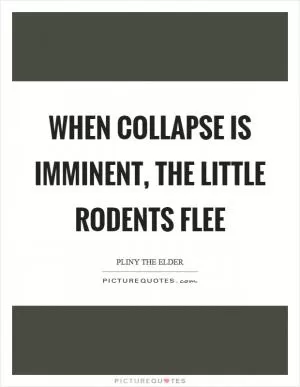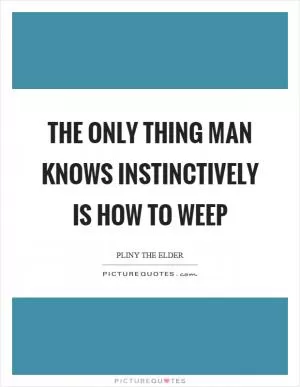Men are most apt to believe what they least understand

Men are most apt to believe what they least understand
The quote "Men are most apt to believe what they least understand" holds a significant relevance in the context of Pliny the Elder, a Roman author, naturalist, and philosopher who lived during the first century AD. Pliny the Elder is best known for his encyclopedic work "Naturalis Historia" (Natural History), which covers a wide range of topics including astronomy, geography, zoology, botany, and mineralogy. In his work, Pliny sought to compile and organize all the knowledge of the ancient world, making him one of the most influential figures in the history of science.Pliny's work reflects the intellectual curiosity and thirst for knowledge that characterized the Roman Empire during his time. However, despite his dedication to gathering information and presenting it in a systematic manner, Pliny was not immune to the human tendency to believe what is least understood. This is evident in his treatment of certain topics in "Naturalis Historia" where he relies on hearsay, superstition, and myth rather than empirical evidence and rational inquiry.
One example of this can be seen in Pliny's discussion of the mythical creature known as the "monoceros" or unicorn. In Book 8 of "Naturalis Historia," Pliny describes the monoceros as a fierce and solitary beast with the body of a horse, the head of a deer, the feet of an elephant, and a single black horn projecting from its forehead. Pliny claims that the horn of the monoceros has magical properties and can neutralize poisons, cure diseases, and detect the presence of poison in liquids.
Despite the fantastical nature of the monoceros and the lack of any concrete evidence to support its existence, Pliny presents the creature as a real and tangible entity. This reflects his willingness to believe in things that are least understood, even when they defy reason and logic. Pliny's uncritical acceptance of the monoceros serves as a cautionary tale about the dangers of blind faith and the importance of critical thinking in the pursuit of knowledge.












 Friendship Quotes
Friendship Quotes Love Quotes
Love Quotes Life Quotes
Life Quotes Funny Quotes
Funny Quotes Motivational Quotes
Motivational Quotes Inspirational Quotes
Inspirational Quotes